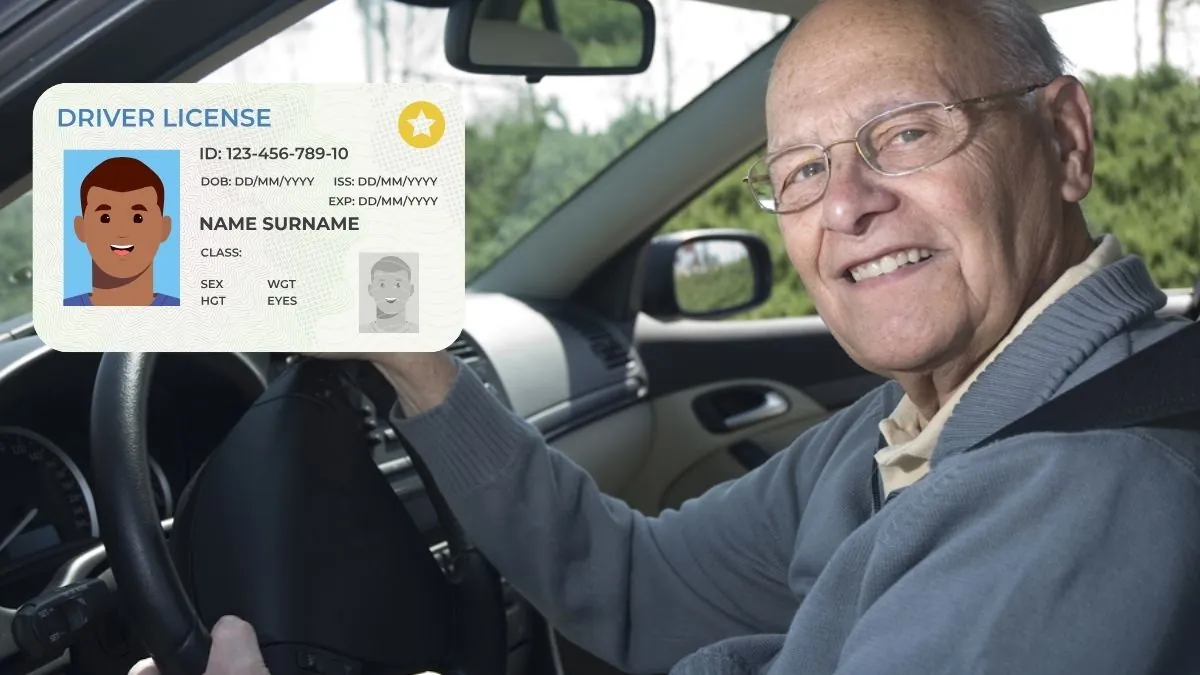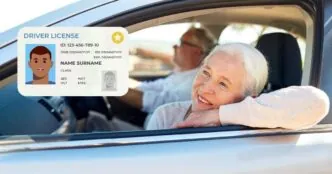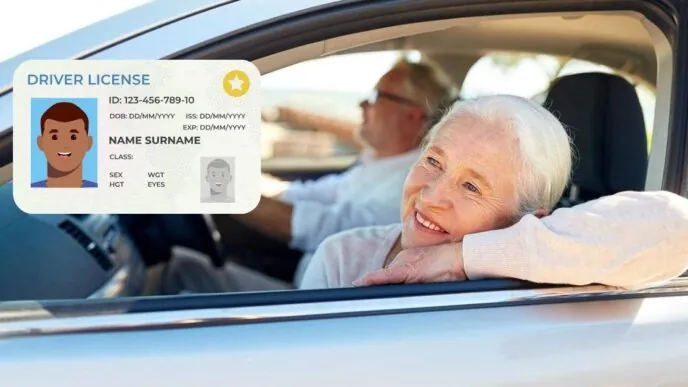As we age, certain aspects of life require more attention, and one of those is driving. In Missouri, like in many other states, license renewal becomes increasingly important as drivers grow older. The state has specific requirements and processes tailored to senior drivers to ensure that they are safe and capable of handling the responsibilities of driving. This article provides a comprehensive guide for seniors in Missouri looking to renew their driver’s license in 2024, covering everything from eligibility requirements to steps involved in the renewal process.
Understanding the Importance of License Renewal for Seniors
Why License Renewal is Crucial for Seniors
For seniors, maintaining a valid driver’s license is more than just a legal requirement; it’s often a key factor in maintaining independence. A driver’s license allows older adults to continue participating in social activities, accessing healthcare, and staying connected with family and friends. However, the renewal process is essential to ensure that these drivers are still fit to operate a vehicle safely.
Missouri’s Approach to Senior Drivers
Missouri takes a proactive approach to senior drivers by implementing specific regulations to ensure the safety of older drivers and others on the road. These regulations include more frequent license renewals and additional testing requirements as drivers age. Understanding these rules is vital for seniors who want to stay on the road legally and safely.
Missouri’s License Renewal Requirements for Seniors
General License Renewal Requirements
In Missouri, driver’s licenses must be renewed every six years for most drivers. However, as drivers age, the renewal period shortens, reflecting the state’s commitment to monitoring the capabilities of older drivers more closely.
- For drivers aged 21 to 69: Renewal every 6 years.
- For drivers aged 70 and above: Renewal every 3 years.
Specific Requirements for Seniors Aged 70 and Above
Once a Missouri driver reaches the age of 70, they must renew their license every three years. This shorter renewal period ensures that senior drivers are regularly assessed for their ability to drive safely.
Key requirements for seniors include:
- Vision Test: A mandatory vision test is required for all senior drivers renewing their license. The test is designed to ensure that the driver has adequate vision to safely operate a vehicle.
- Medical Examination Report: In some cases, a medical examination report may be required. This report assesses the senior’s overall health and ability to drive.
- Knowledge Test: While not mandatory for all seniors, those who have had their license expire for more than six months may need to pass a written knowledge test before renewal.
The Step-by-Step Process for License Renewal
Preparing for Renewal
Preparation is key to a smooth renewal process. Seniors should gather all necessary documents before visiting the Missouri Department of Revenue (DOR) office.
Documents required include:
- Proof of Identity: A valid passport, birth certificate, or other accepted ID.
- Proof of Residency: Utility bills, lease agreements, or any document proving Missouri residency.
- Social Security Number: Either the physical card or a document displaying the SSN.
- Previous Driver’s License: The current or recently expired license.
Taking the Vision Test
The vision test is a crucial component of the renewal process for seniors. It is conducted at the DOR office, where the applicant will be asked to read letters on a chart or view symbols through a machine. If a senior fails the vision test, they may be required to visit an optometrist or ophthalmologist and submit a Vision Examination Report (Form 1528).
Medical Examination Report (if required)
If the DOR requests a Medical Examination Report, seniors must have the form completed by a licensed physician. This report evaluates the senior’s physical and mental ability to drive. Conditions such as dementia, epilepsy, or severe arthritis might lead to further evaluation or restrictions on the driver’s license.
Knowledge Test (if required)
For seniors who need to take the knowledge test, it’s advisable to study the Missouri Driver Guide. The knowledge test covers road signs, traffic laws, and safe driving practices. The test is conducted on a computer at the DOR office and typically consists of 25 multiple-choice questions.
Submitting the Application
Once all tests are passed and documents gathered, seniors can submit their renewal application at the DOR office. It’s important to check the office hours and possibly schedule an appointment to avoid long wait times.
Costs and Fees Associated with License Renewal
Renewal Fees
The cost of renewing a driver’s license in Missouri varies depending on the age of the driver and the length of the renewal period. As of 2024, the fees are as follows:
- 6-Year License Renewal (for drivers aged 21-69): $35
- 3-Year License Renewal (for drivers aged 70+): $20
These fees cover the administrative costs of processing the renewal application, conducting the vision test, and issuing the new license.
Additional Costs
There may be additional costs for seniors who need to undergo a medical examination or take the knowledge test. For example, a visit to an optometrist for a vision examination can cost between $50 and $150, depending on the provider. Seniors should also consider the potential costs of studying for the knowledge test, such as purchasing the Missouri Driver Guide or using online resources.
Special Considerations for Seniors
Medical Conditions Impacting Driving
As we age, certain medical conditions may arise that could impact driving ability. Conditions such as glaucoma, macular degeneration, arthritis, and dementia can affect a senior’s ability to see clearly, react quickly, or control a vehicle. Missouri law requires that drivers report any medical conditions that could impair their driving ability.
- Glaucoma and Cataracts: These eye conditions can significantly reduce a driver’s vision, making it difficult to see road signs, pedestrians, or other vehicles. Seniors with these conditions may be required to submit a Vision Examination Report.
- Arthritis: Severe arthritis can limit a driver’s ability to turn the steering wheel, press the pedals, or check blind spots. Depending on the severity, a Medical Examination Report may be required, and the license may be issued with restrictions.
- Dementia: Drivers with dementia or cognitive impairments may be subject to additional evaluations to determine if they can continue driving safely. In some cases, the DOR may issue a restricted license or recommend that the individual no longer drive.
The Role of Family and Physicians
Family members and physicians play a critical role in supporting senior drivers. They can help assess whether it is still safe for the senior to drive and assist in navigating the renewal process. In some cases, they may need to have difficult conversations about transitioning from driving to other forms of transportation.
Alternatives to Driving for Seniors
Public Transportation Options
For seniors who decide not to renew their driver’s license or are unable to pass the required tests, public transportation offers an alternative. Missouri’s major cities, including St. Louis, Kansas City, and Springfield, offer senior-friendly public transportation options.
- St. Louis: The MetroLink light rail system and MetroBus provide extensive coverage throughout the city. Seniors aged 65 and older are eligible for reduced fares.
- Kansas City: The RideKC bus system offers discounted fares for seniors. Additionally, the city’s paratransit services are available for those who need assistance.
- Springfield: The City Utilities Transit offers discounted senior fares and ADA-compliant transportation for those with mobility issues.
Ride-Sharing and Senior Transportation Services
In addition to public transportation, ride-sharing services like Uber and Lyft offer convenient alternatives for seniors. Some communities also have senior transportation services that provide door-to-door assistance.
- Uber and Lyft: Both companies offer easy-to-use apps that seniors can use to book rides. For those who may not be tech-savvy, family members can book rides on their behalf.
- Senior Transportation Services: Many Missouri communities offer transportation services specifically for seniors. These services often include door-to-door transportation for medical appointments, grocery shopping, and other essential activities.
Preparing for the Future: When to Stop Driving
Recognizing the Signs
Knowing when to stop driving is one of the most challenging decisions seniors and their families face. It’s essential to recognize the signs that it may be time to stop driving, including:
- Frequent Accidents or Close Calls: Even minor fender-benders or near-misses can be a sign that a senior is no longer safe behind the wheel.
- Difficulty Navigating: Getting lost in familiar places or having trouble reading road signs can indicate declining cognitive function.
- Slow Reaction Times: If a senior has difficulty reacting quickly to unexpected situations, such as a pedestrian crossing or sudden stop in traffic, it may be time to consider alternative transportation options.
Having the Conversation
Discussing the end of driving can be emotional and challenging. It’s crucial to approach the conversation with empathy and understanding. Emphasizing safety for the senior and others on the road can help ease the transition.
Planning for Life Without Driving
For many seniors, giving up driving can feel like a loss of independence. However, planning can make the transition smoother. Exploring alternative transportation options, staying active in the community, and finding new ways to stay connected can help seniors adjust to life without a car.
Conclusion
License renewal is a critical process for seniors in Missouri. The state’s requirements are designed to ensure that older drivers remain safe on the road, while also providing them with the independence that driving offers. By understanding the renewal process, preparing for the required tests, and considering alternative transportation options, seniors can continue to live full and active lives in 2024 and beyond.
Staying informed about the rules and options available allows seniors and their families to make the best decisions regarding driving. Whether renewing a license or transitioning to other forms of transportation, the key is to prioritize safety and well-being while maintaining as much independence as possible.
This Article Includes
- 1 Understanding the Importance of License Renewal for Seniors
- 2 Missouri’s License Renewal Requirements for Seniors
- 3 The Step-by-Step Process for License Renewal
- 4 Costs and Fees Associated with License Renewal
- 5 Special Considerations for Seniors
- 6 Alternatives to Driving for Seniors
- 7 Preparing for the Future: When to Stop Driving
- 8 Conclusion











